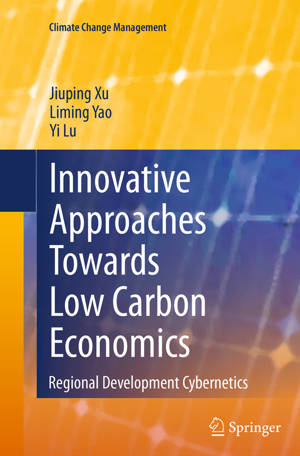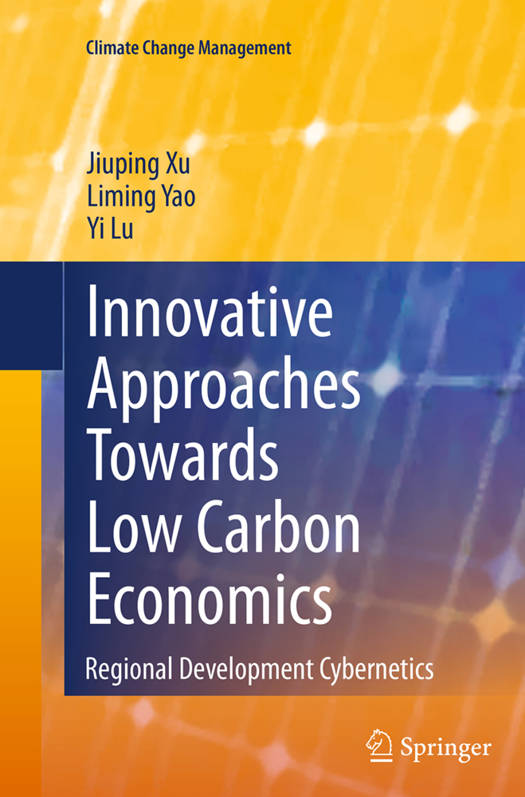
- Afhalen na 1 uur in een winkel met voorraad
- Gratis thuislevering in België vanaf € 30
- Ruim aanbod met 7 miljoen producten
- Afhalen na 1 uur in een winkel met voorraad
- Gratis thuislevering in België vanaf € 30
- Ruim aanbod met 7 miljoen producten
Zoeken
Innovative Approaches Towards Low Carbon Economics
Regional Development Cybernetics
Jiuping Xu, Liming Yao, Yi Lu
€ 105,45
+ 210 punten
Uitvoering
Omschrijving
Climate change is an inevitable and urgent global challenge with long-term implications for the sustainable development of all countries. To overcome this human crisis, the scientific consensus is driving global action towards low carbon economics. Though this action has to involve all sectors (industries, governments, and citizens) and at all levels (global, national and regional levels), the implementation of climate strategies will predominantly be at the regional level. By establishing an innovative range of model technologies, this book aims to develop systematic quantificational methods, such as uncertain multi-objective programming models and system dynamics models, to provide a new approach to low carbon economics that can serve as a paradigm for general regions. At the same time, it offers decision makers a number of effective strategies for some key issues in regional low carbon development, such as greenhouse gas control, ecological capacity evaluation, regional economic prediction, energy structure optimization, land resource utilization, industrial structure adjustment, low carbon industrial chains, low carbon transportation systems and low carbon tourism. It also provides researchers with a new perspective on how to address social problems using quantitative techniques.
Specificaties
Betrokkenen
- Auteur(s):
- Uitgeverij:
Inhoud
- Aantal bladzijden:
- 436
- Taal:
- Engels
- Reeks:
Eigenschappen
- Productcode (EAN):
- 9783662514702
- Verschijningsdatum:
- 3/09/2016
- Uitvoering:
- Paperback
- Formaat:
- Trade paperback (VS)
- Afmetingen:
- 156 mm x 234 mm
- Gewicht:
- 648 g

Alleen bij Standaard Boekhandel
+ 210 punten op je klantenkaart van Standaard Boekhandel
Beoordelingen
We publiceren alleen reviews die voldoen aan de voorwaarden voor reviews. Bekijk onze voorwaarden voor reviews.











